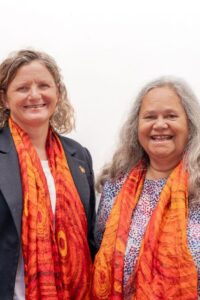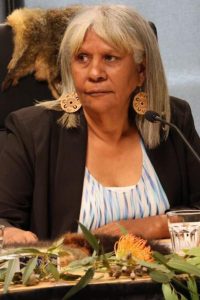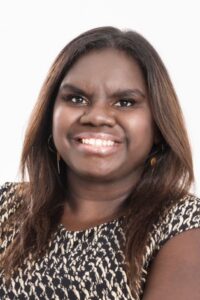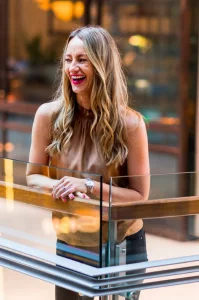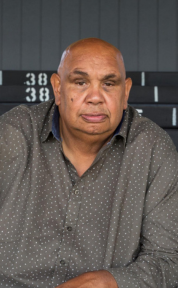Moving Forward Together: Reconciliation Week Speakers 2026
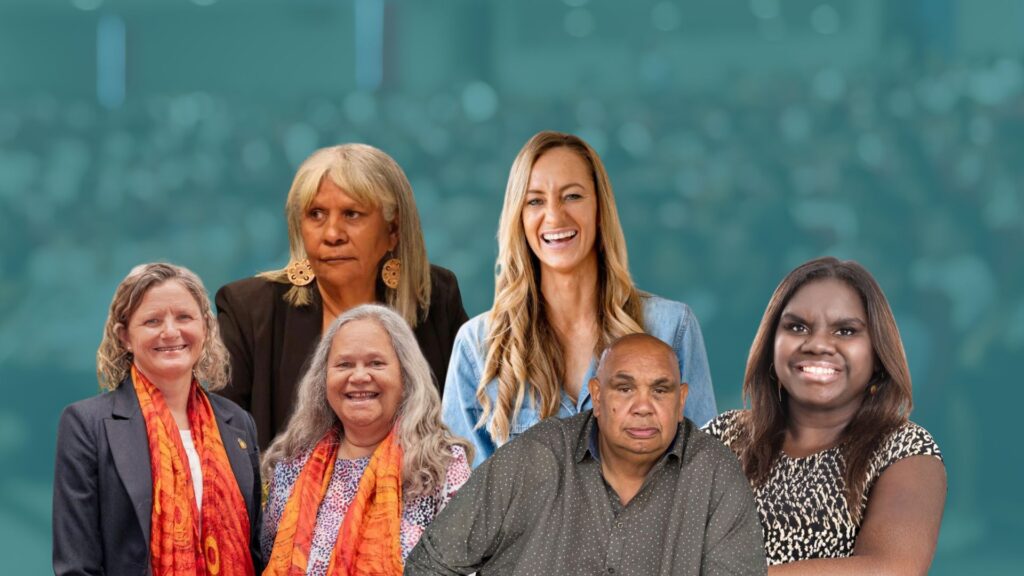
Contents:
- Overview
- When is Reconciliation Week 2026?
- A Brief History: What is National Reconciliation Week?
- Other important dates
- How to Get Involved in Reconciliation Week
- Reconciliation Week Keynote Speakers
Reflect and come together this National Reconciliation Week (NRW) with all Australians as we learn more about our shared histories, cultures, and achievements.
As we move forward together, reconciliation must live in the hearts, minds and actions of every Australian to create a nation based on respectful relationships between Aboriginal and Torres Strait Islander peoples and the wider Australian community
We all have an important role to play when it comes to reconciliation, helping to build relationships and communities that value the history, rights, values, cultures and futures of Aboriginal and Torres Strait Islander peoples.
By listening to first-hand stories from Aboriginal and Torres Strait Island Australians, we can better understand and explore how we can do our part in achieving reconciliation in Australia.
When is Reconciliation Week 2026?
Reconciliation Week is celebrated annually from May 27 to June 3.
A Brief History: What is National Reconciliation Week?
Reconciliation Week is a time to commemorate two important milestones in Australia’s reconciliation journey:
- The successful 1967 Referendum – This changed the Constitution to include Aboriginal and Torres Strait Islander people in the census and remove discriminatory references from the Constitution
- The High Court Mabo Decision – The High Court overturned the legal doctrine of “terra nullius”, leading to the creation of the Native Title Act 1993.
National Reconciliation Week (NRW) started as the Week of Prayer for Reconciliation in 1993 (the International Year of the World’s Indigenous Peoples) and was supported by Australia’s major faith communities.
In 1996, the Council for Aboriginal Reconciliation launched Australia’s first National Reconciliation Week.
25 years ago at Corroboree 2000, Aboriginal and Torres Strait Islander and non-Indigenous leaders joined together in a historic call for reconciliation.
In 2001, Reconciliation Australia was established to continue to provide national leadership on reconciliation.
In the same year, approximately 300,000 people walked across Sydney Harbour Bridge as part of National Reconciliation Week-and subsequently across bridges in cities and towns-to show their support for reconciliation.
Today, National Reconciliation Week is celebrated in workplaces, schools and early learning services, community organisations and groups, and by individuals Australia-wide.
Australia’s history of reconciliation is not linear. We have made huge strides as well as facing some disappointing setbacks. In 2026, let’s focus on making more of the great strides as we all join together in Bridging Now to Next and creating a more united and respectful nation.
Other important dates:
- 13 February – Anniversary of National Apology Day
- 16 March – National Close the Gap Day
- 26 May – National Sorry Day
- 6 July – 13 July – NAIDOC Week
- 4 August – National Aboriginal and Torres Strait Islander Children’s Day
- 9 August – International Day of the World’s Indigenous Peoples
- 6 September – Indigenous Literacy Day
How to Get Involved in Reconciliation Week
There are many ways to acknowledge Reconciliation Week and pay our respects to the traditional custodians of our land. In light of this year’s theme, learning more about Aboriginal and Torres Strait Islander history and culture is key to bridging the lessons of the past with a brighter future. Reconciliation Week events by workplaces, schools and communities often focus on inviting Indigenous speakers to speak about their personal stories, Indigenous perspectives and how we can all contribute to the ongoing journey of reconciliation.
Reconciliation Week Keynote Speakers
Reconciliation is built on respect. Acknowledging the deep ties that Aboriginal and Torres Strait Islander people have to the land is one great way of showing respect. Even more important is listening to their stories, respecting their authority on cultural practices and following their lead on how the future of reconciliation should look. You can join this inspiring and powerful process by inviting one of our Reconciliation Week speakers for 2026.
ICMI collaborates with a wide range of incredible Indigenous Australian speakers and performers with a wealth of knowledge, stories and talents to share.
Aunty Munya & Carla Rogers
Learning more about Country, our history, and the deep connection Indigenous peoples have had with this beautiful land is essential to reconciliation. Aboriginal Elder, author, and advocate Aunty Munya Andrews, alongside Churchill Fellow Carla Rogers, helps foster greater understanding of Aboriginal culture and history through their talks, books, and training. As co-Directors of Evolve Communities, they share knowledge and practical ways to support reconciliation and build stronger connections between Indigenous and non-Indigenous Australians.
Gavin Wanganeen
AFL legend, Indigenous artist and passionate reconciliation activist Gavin Wanganeen uses his influence as a 2 time Premiership winner, the first Indigenous Brownlow Medalist, member of the AFL Hall of Fame to champion Indigenous rights and advocate for meaningful and lasting reconciliation. Whether through sports, arts or business, he is an incredibly dedicated and passionate advocate for First Nations peoples.
Eva Jo Edwards
Survivor of the Stolen Generations and proud Mutti Mutti, Boonwurrung and Yorta Yorta woman, Eva Jo Edwards is an experienced advocate of reconciliation. As a cultural educator, she uses both performance and public speaking to create change, build understanding and motivate us all to do our part in the reconciliation process.
Leila Gurruwiwi
Whether through presenting the news, acting, or mentoring Indigenous youths, Leila Gurruwiwi has a versatile and important impact on reconciliation. As a Yolngu woman of the Galpu Clan from Northeast Arnhem land, she focuses on growing cultural awareness about Indigenous perspectives and issues across her community pursuits, media career and education initiatives.
Mindy Woods
Using her platform in the culinary world, Mindy Woods champions reconciliation and Indigenous culture through her talks, cooking demonstrations and media appearances. She was the first female Indigenous chef to be awarded a ‘Chefs Hat’ in AGFG, helping to bring Indigenous cuisine to the forefront while telling stories about the history and cultures of our First Nations peoples.
Kutcha Edwards
With a message of understanding and hope, song man Kutcha Edwards is at the forefront of reconciliation, with a long history of driving change through activism and great songwriting since 1991. After joining Koori group Watbalimba, his incredible journey has taken him from the small Riverina town of Balranald to tours across Australia and around the world. First-hand experience as a survivor of the Stolen Generations and his proud Mutti Mutti heritage makes his passionate advocacy and creative output truly impactful.
At ICMI, we have an incredible variety of Indigenous speakers ready to help you commemorate Reconciliation Week 2026 in a powerful way. We hope you can join all Australians in honouring the rich culture and history of the original custodians of this land as well as our shared journey moving forward.
Book one of our inspiring Indigenous speakers for Reconciliation Week. Call us now on 1800 334 625 or make an enquiry online.
